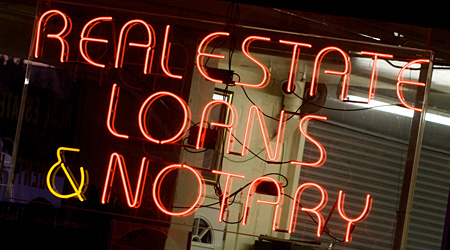About Home Equity Line Of Credit Rates

Like all lines of credit the rates charged on a home equity line of credit are determined by a number of factors including the creditworthiness of the person receiving the line of credit as well as current economic interest rates. Just like credit cards, a home equity line of credit may have different rates with the same lender or it may be best to shop around to see if a better rate can be obtained elsewhere.
Home equity lines of credit, also known as a HELOC, function much like the credit card with the exception that while credit card debt is often unsecured a home equity line of credit is secured against the equity built up in the home. However, a home equity line of credit is different from a home equity loan in that instead of receiving a large lump sum to be used specifically for home remodeling of repairs or to consolidate automobile loans it functions more like a credit card and can used for incremental purchases no home related purchases.
The interest rate charged for home equity lines of credit also function similar to a credit card in that they have a variable interest rate and that rate is based on some market interest rate as a base with additional percentage points added to the base rate. For example, it is common when extending lines of credit to base a loan on the Prime Rate or the London Interbank Offered Rate (LIBOR). Then a margin rate based on the creditworthiness of the homeowner is added to the base rate to determine the HELOC interest rate.
The underlying base rate, also known as the prime rate, can fluctuate based on macroeconomic conditions so the interest rate charged on a home equity line of credit can fluctuate as well. Based on the bank loan terms this variable rate will be calculated either every month, quarter, twice a year or annually. As with all loans it might be prudent to go to multiple financial institutions, either banks and credit unions, to see if you can get the best rate possible.
Since home equity lines of credit are tied directly to real estate it is important to fully understand the loan terms because if the homeowner should default on the loan, the property in question could be foreclosed or a lien placed with significant fees and penalties could be imposed. Most home equity lines of credit are in fact quite simple and straightforward but as with any legal document, especially one tide to your home, thoroughly review all documents before signing.
It may not even be possible to receive a home equity line of credit depending on the creditworthiness of the applicant or the current housing environment. If there is a dramatic drop in home price value it could become possible that the equity that the home equity line of credit was based on could disappear and the borrower could default on the loan. If there is high unemployment this can also impact the lenders decision-making on whether not to extend a home equity line of credit.
HELOCs can be a great way to make purchases outside of what would be required by a home equity loan with better interest rate terms than what could be offered using a credit card. Home equity lines of credit are secured loans with specific terms which should be fully understood to avoid any complications including placing your current living situation in jeopardy. Read all documents thoroughly and make sure your entering an agreement which is beneficial and not counterproductive to your financial goals.







